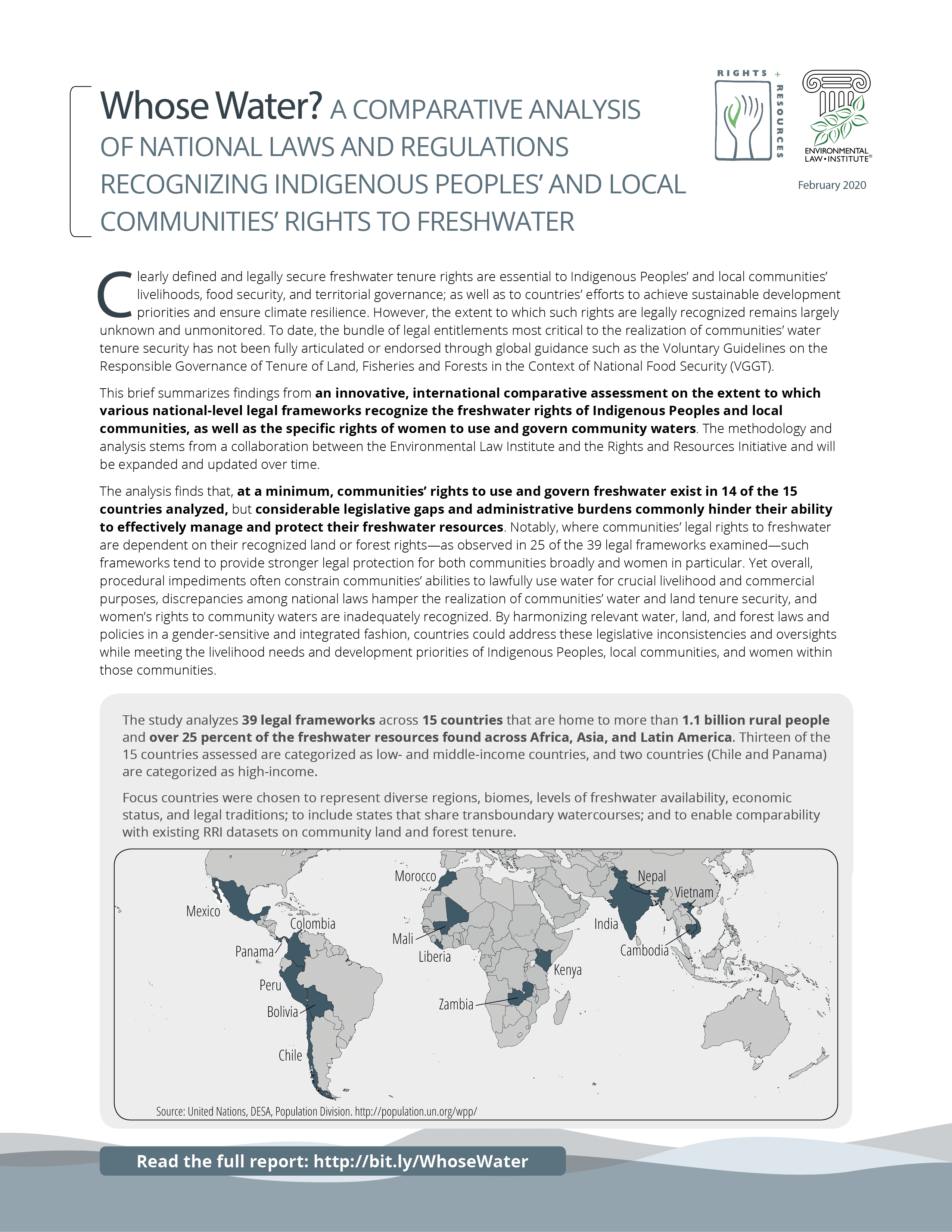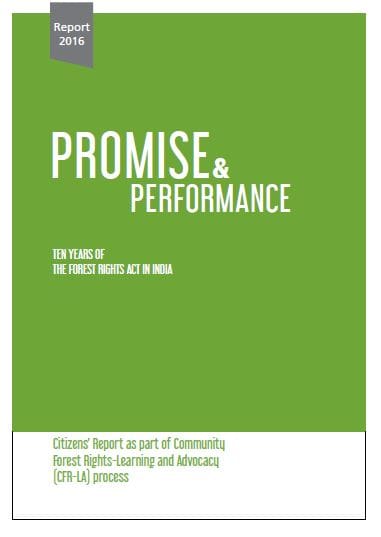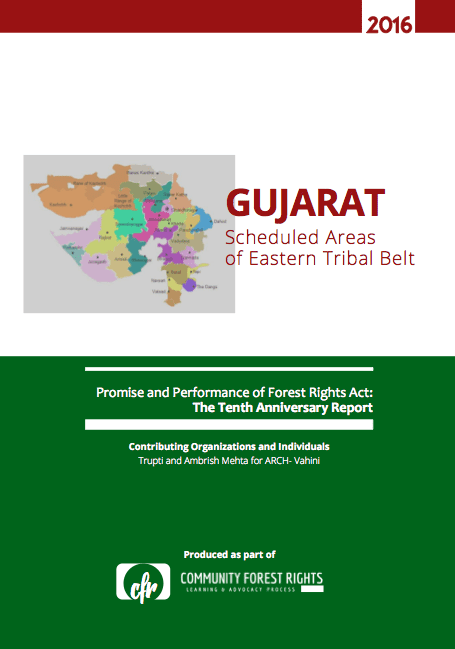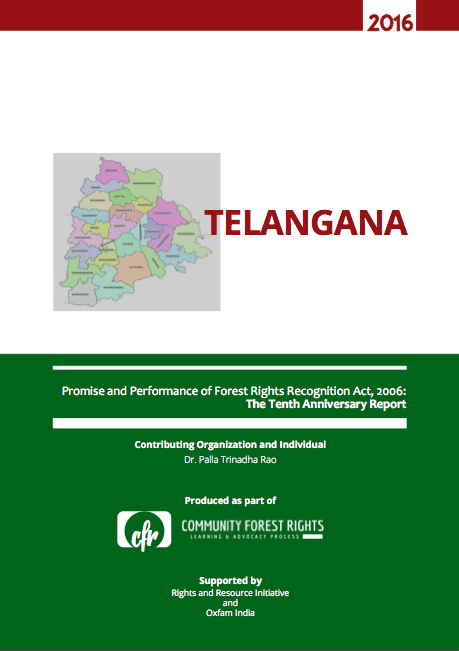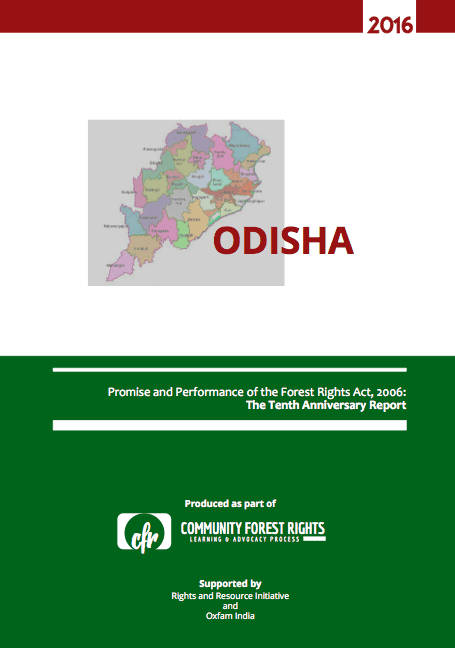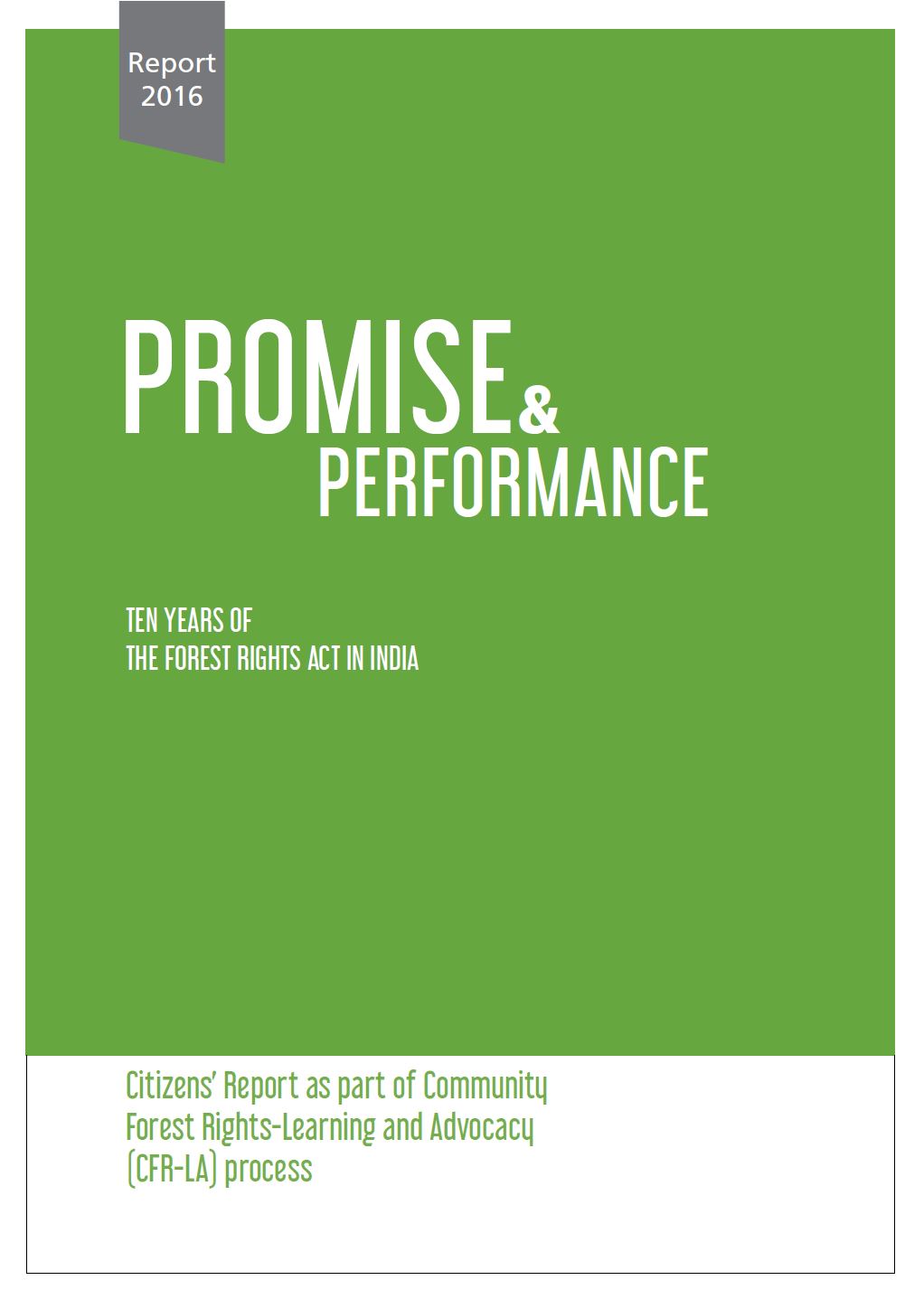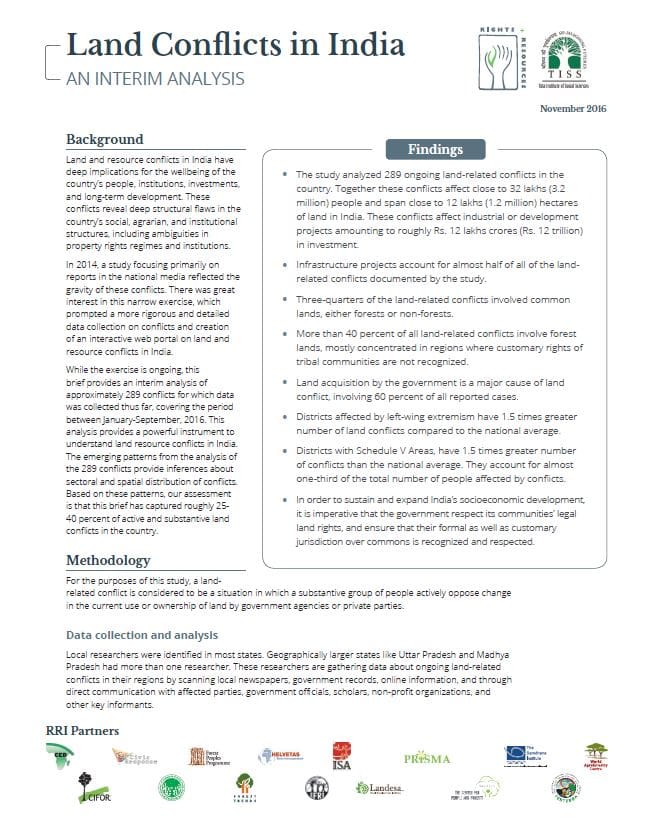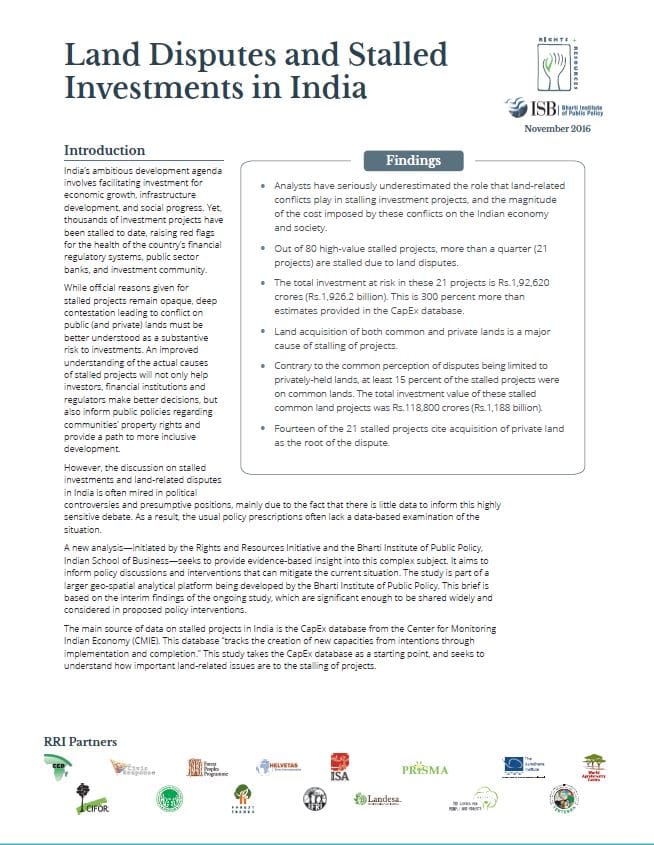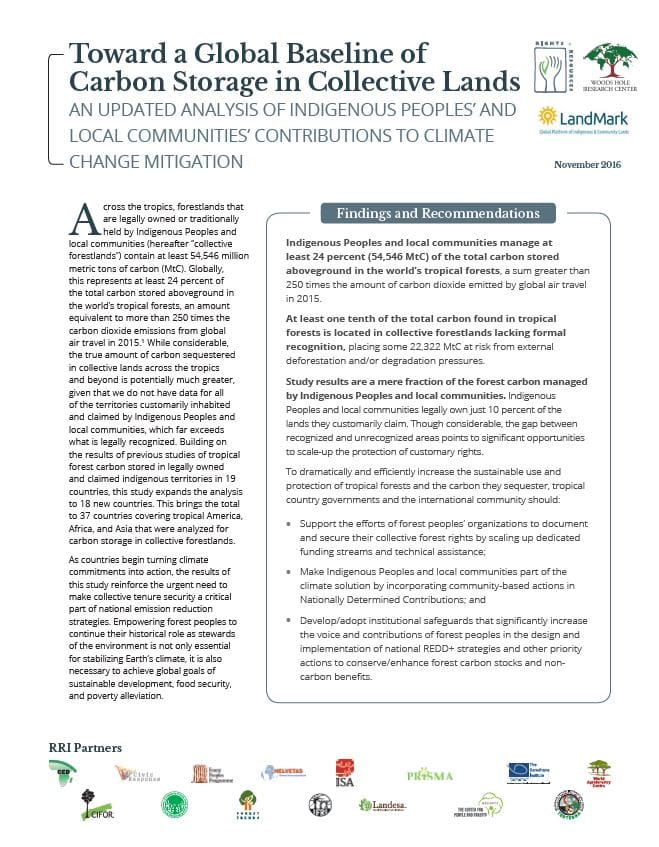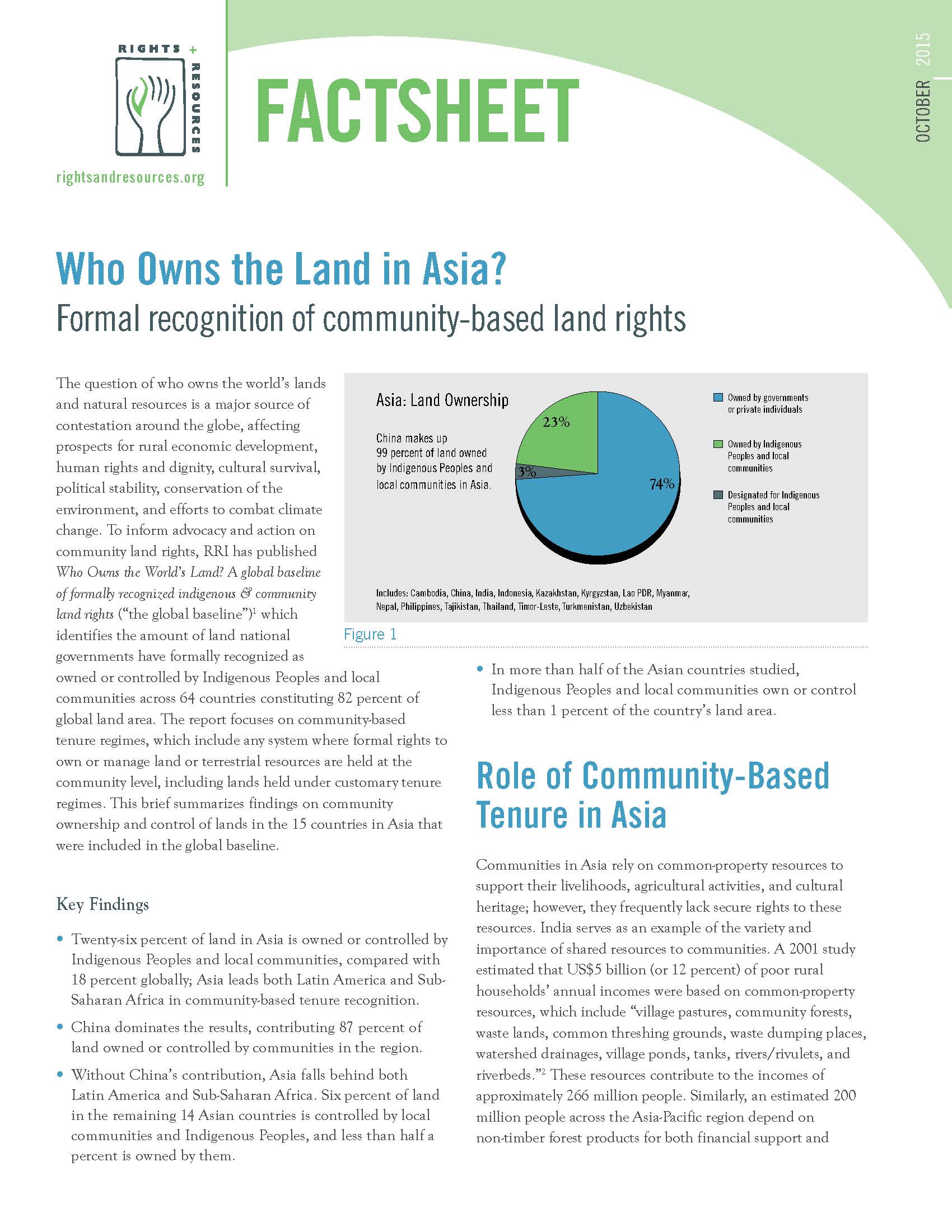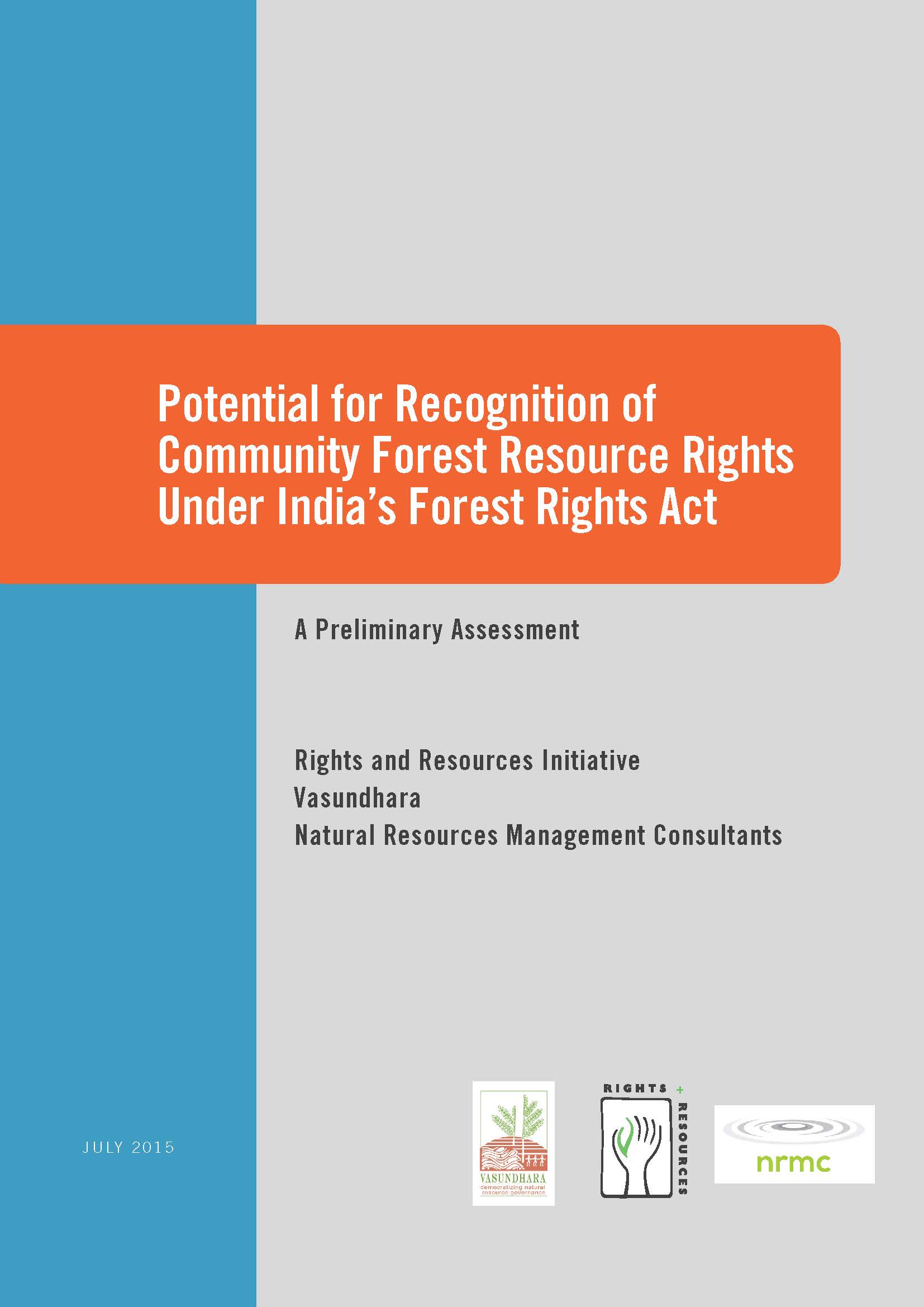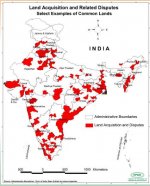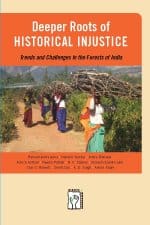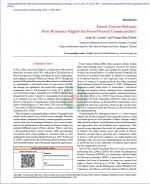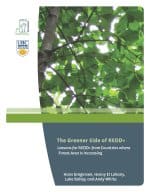Through examples of Indigenous Peoples’, Afro-descendant Peoples’, and local communities’ movements from the Maya Biosphere Reserve in Guatemala, the Enggano island in Indonesia, India's Bastar region, the Sinangoe in the Ecuadorian Amazon, and Colombia, the report presents best practices from communities defending their territories and cultures.
This brief discusses legislative developments during COVID-19 in India, Indonesia, and the Philippines that undermine sustainable human-environment interactions and broader enjoyment of Indigenous and community rights over their customary territories.
This report presents an innovative, international comparative assessment on the extent to which various national-level legal frameworks recognize the freshwater tenure rights of Indigenous Peoples, Afro-descendants, and local communities, as well as the specific rights of women to use and govern community waters.
In India, conflicts over land can have deep and far-reaching implications for the well-being, development, and identities of communities. A land conflict can be defined as any instance in which two or more parties contest the use of, access to, or control over land and its associated resources. Land conflicts permeate rural and urban areas across all Indian states. Resolving land conflicts in India's developing economy is essential to reducing inequality and the inequities that an isolated focus on growth can exacerbate. Land Conflict Watch (LCW) has investigated the reasons for, and the impact of, land conflicts across the country over the last three years.
If properly leveraged, natural climate solutions can contribute over 37% of cost-effective CO2 mitigation by 2030. Evidence shows Indigenous Peoples and local communities are key to achieving such outcomes. This report presents the most comprehensive assessment to date of carbon storage in documented community lands worldwide.

At a Crossroads: Consequential Trends in Recognition of Community-Based Forest Tenure from 2002-2017
This analysis reports on trends in global forest tenure from 2002-2017. It is the fourth in a series of analyses monitoring the legal recognition of forest tenure around the world.
The following reports were produced in 2016-17 as part of the Community Forest Rights Learning & Advocacy Process, with the support of the Rights and Resources Initiative and Oxfam India.
This study gives an approximate estimate of the potential forest areas that can be covered under the FRA in Gujarat. The idea is to compare and assess the actual status of the implementation with regards to the potential. This study also provides an overview of the implementation of the Act, together with highlights of both positive and negative aspects of the process and outcomes.
This study makes a preliminary assessment of the potential forest area over which rights can be recognized in Telangana under the FRA and compares it with the actual performance. The estimate provided offers a baseline for informing implementation, planning, and setting targets for rights recognition under the FRA.
This study makes a preliminary assessment of the potential forest area over which rights can be recognised in Odisha under the FRA. The estimate offers a baseline for informing implementation, planning, and setting targets for rights recognition under the FRA.
This report highlights FRA’s potential in transforming forest governance by empowering local communities and the gram sabha to protect and conserve forests; ensuring livelihood security and poverty alleviation; securing gender justice; meeting SDG, especially the goals of eliminating poverty and achieving ecological sustainability; and dealing with climate change.
This analysis provides a powerful instrument to understand land resource conflicts in India. Based on the emerging patterns from the analysis of the 289 conflicts, our assessment is that this brief has captured roughly 25- 40 percent of active and substantive land conflicts in the country.
This analysis seeks to provide evidence-based insight into the thousands of investment projects stalled to date in India.
A new report quantifying the carbon stored aboveground in tropical forests that are legally owned or traditionally held by Indigenous Peoples and local communities in 37 countries across tropical America, Africa, and Asia.
This brief summarizes findings on community ownership and control of lands in 15 countries in Asia. These countries were included in RRI’s global baseline of formally recognized indigenous and community land rights.
With over 93% of natural resource development in emerging economies at risk for land conflict, the global land investment experience has key lessons for India.
The implementation of Community Forest (CF) rights and Community Forest Resource (CFR) rights under the Forest Rights Act 2006 (FRA) can transform forest governance and rural livelihoods…
WASHINGTON, D.C. (November 25, 2014)—A new map of land conflicts in India shows that at least one quarter of India’s districts are affected by some…
Map of land aquisition and related disputes select examples of common lands.
This book is a compilation of research and analyses from some of the leading scholars and experts on the Indian forest sector. Their analyses take…
Excerpt from special issue of the Journal of Conservation and Society edited by Anne M. Larson and Ganga Ram Dahal. The issue examines cases of…
Novas pesquisas divulgadas hoje pela RRI (sigla em inglês da Iniciativa para Direitos e Recursos) mostram que, nos últimos 20 anos, centenas de milhões de…
New research released today by the Rights and Resources Initiative (RRI) shows that hundreds of millions of forest peoples in tropical nations have, in the…
In the last decade, countries have committed major resources to reducing carbon emissions from deforestation and forest degradation in developing countries (REDD). A debate continues…

